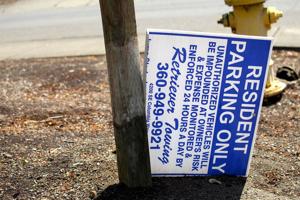Oregon bill would ban landlords from many background checks

(The Center Square) – Oregon lawmakers could soon ban landlords from considering most criminal history in future tenant applications.
If passed, Senate Bill 291 would ban landlords from taking arrests or criminal history into account when considering tenant applications if an applicant entered a diversion program, received a deferred judgment, or was charged for a crime that’s been removed from public records. That includes former offenses in Oregon like possession of cannabis or other illicit drugs.
The bill would have landlords adopt written screening criteria and inform prospective tenants of the screening process and their right to appeal before charging fees or accepting applications. Landlords must also provide applicants with written statements explaining the reason for denial within 14 days. Current law requires landlords to produce a written explanation of denial upon request.
The bill is a Gov. Kate Brown’s racial justice agenda, who requested the legislation. It’s backed by groups like the Oregon Law Center and the Oregon Racial Justice Committee, hoping to close racial gaps in housing law.
State prison data shows Black people are 3.7 times more likely to be imprisoned than their white peers. The 2016 HUD guidance recommends tenants impacted by the criminal justice system be assessed on a case-by-case basis.
“Too often, current law allows applicants for rental housing to be summarily denied access, based on criminal history that may bear no rational relationship to the ability to be a good tenant,” Hebb told state lawmakers this month. “While facially neutral, screening policies that deny applicants based on criminal history statistically have a disparate impact on communities of color, on people with disabilities, and on people who are houseless.”
Some Oregon landlord groups take issue with SB 291’s ‘intrusive” requirements. Michael Havlik, deputy executive director of the Multifamily NW housing group, testified to state lawmakers the bill heaps more paperwork onto applicants they might not want. Federal guidance on tenant applications, Havlik said, should be enough to instill equity in the application process.
“This law does not leave the decision to the applicant,” Havlik said. “Housing providers must conduct the [individual assessment] whether the applicant wants this or not. Some applicants do not wish to re-litigate their past, and it should be their option to opt into an intrusive investigation of their personal data.”
Allan Lazo and Kirsten Blume, two lobbyists with the Fair Housing Council of Oregon, shared similar concerns with state lawmakers on Monday. The two said they support the original bill as drafted but opposed several amendments tying individualized assessments to tenant-provided information. Without such information, they say, landlords could be off the hook for conducting case-by-case assessments.
“If anything, SB 291 in its original form codifies a practice that HUD suggests is the best way to ensure equal access to housing for protected class individuals while also helping housing providers avoid disparate impact legal claims,” the two wrote. “This change in language requiring supplemental evidence to trigger the individualized assessment is confusing, misguided, and could hurt our attempts at future advocacy.”
SB 291 passed by a vote of 17-3 in the Senate in April. It awaits consideration in the House, where it was passed out of committee unanimously.
Disclaimer: This content is distributed by The Center Square

